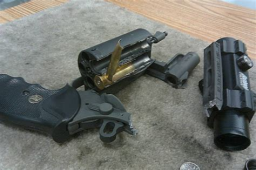EastTexCowboy
Solar Wizard
40 years for me on the IT part, but I had a different approach. Live redundancy where possible where failover systems kept the end user functioning and usually not even knowing there was a failure - servers, internet connections, etc. Hot swap hard drives with rebuild on the fly RAID. Multiple spares of just about everything that was critical to keeping that MTTR low. Routers, switches, workstations, printers, and pretty much everything else. It's expensive and yeah, we threw away some hardware or sold it at a loss. Part of the reason for this was almost all my clients were healthcare, including hospitals and ERs. They don't want to hear "sorry, but the radiology PACS server is down" when they have a stroke patient in the ER and need a stat CT. So the cost of the redundancy was actually just a one time insurance premium that proved itself well worth the cost when the inevitable failure came along. I know for a fact that it saved a few lives over the years. Then along came COVID and they were especially happy to have spares on site, because you damn sure couldn't get anything for a while.As a long time IT guy, you learn things about redundancies and MTBF num(lies)bers, and MTTR numbers. A lot of it is just plain math and statistics. The more stuff you have the more likely you are to have a failure. This is something that is sometimes difficult for smart people to grok. I've always looked for minimal redudancy and as low a MTTR as I can get. The other problem used to occur a lot with hard disks, and that is the cold spare issue. The problem is once components start failing that you've had in service for a long time, they tend to cascade. And then the final issue, which is the technology keeps improving, so if you buy too much, you load up on soon to be obsolete tech. If you are going to have spares, in most cases you may as well run them, and size your systems with overhead to handle failures, replacing and upgrading components as they fail.
From a pure disaster scenario, design your systems with easily replaceable components whenever possible. And in the case of DIY solar, make sure you have the basic tools you need to scab in something quickly.
YMMV.
I'm not saying I disagree with managing costs and efficiency, because I absolutely do agree. But it depends on the situation. My problem is that after years of doing that and now that I'm retired it's hard to shake it. I'm so accustomed to having a spare everything that I just kind of plan for it out of habit.





